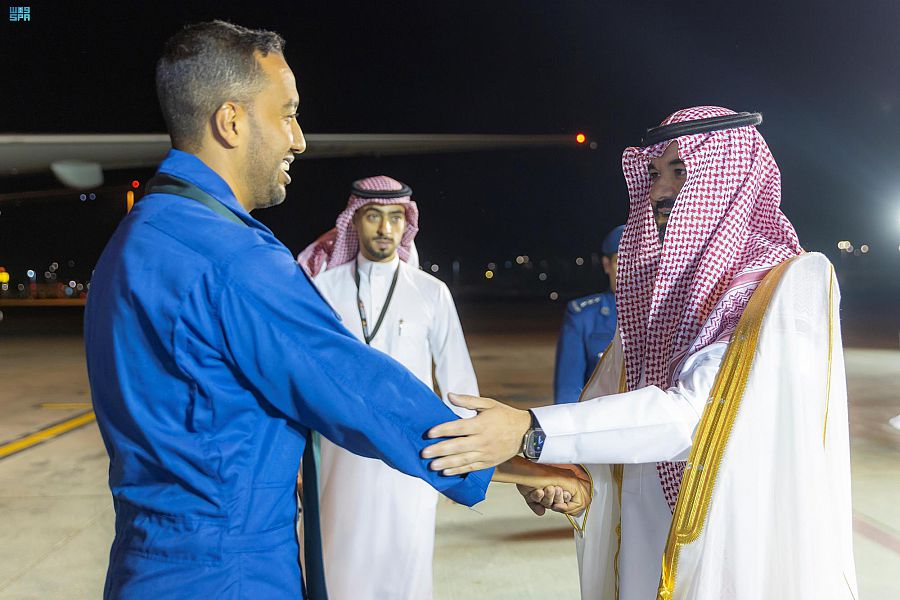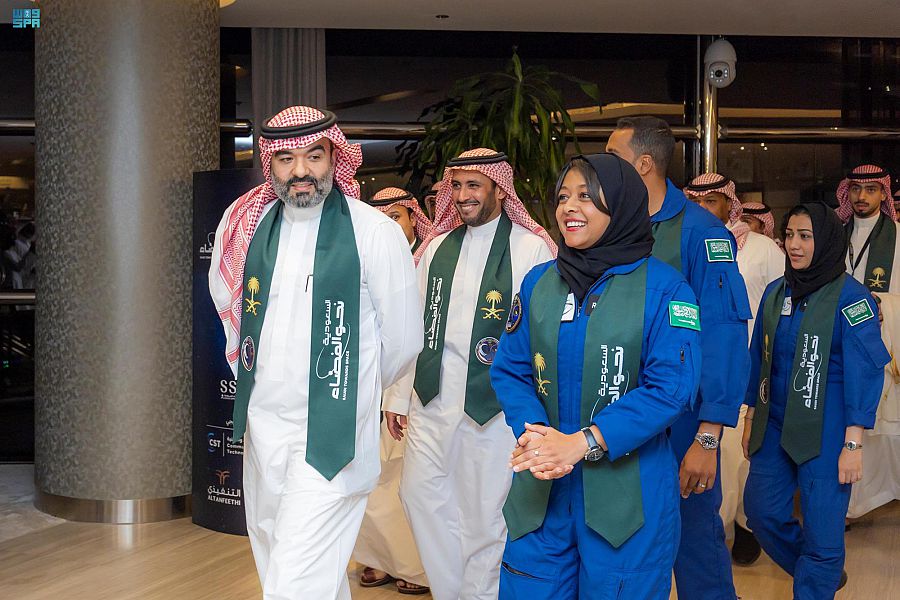Riyadh, Saudi Arabia – The Saudi astronauts Rayana Bernawi, Ali Al-Qarni, Mariam Fardous, and Ali Al-Ghamdi arrived in Riyadh today after the successful scientific mission they led at the International Space Station (ISS).
Upon their arrival at the King Khaled International Airport, the astronauts were received by the Chairman of the Board of Directors of Saudi Space Agency (SSA), Eng. Abdullah Al-Swaha; Chief of General Staff, Lieutenant-General Fayyad bin Hamed Al-Ruwaili; President of King Abdulaziz City for Science and Technology, Dr Munir bin Mahmoud Al-Desouki; the SSA Vice Chairman, Dr. Mohammed Al-Tamimi; and CEO of King Faisal Specialist Hospital Majid Al-Fayyadh.

The SSA said the scientific mission will help the Kingdom play a leading role in space exploration.
The agency also said that the leading achievements and contributions of the Saudi space mission are a source of pride for the nation.
Saudi astronauts Rayana Bernawi and Al-Qarni returned to earth on May 31 from the ISS, where they conducted 14 research experiments on microgravity, three of which were kite experiments with 12,000 school students from 47 locations across the Kingdom via satellite.

During her time in space, Barnawi researched human immune cells and examined their inflammatory response in a microgravity environment. This research aimed to gain a deeper understanding of how the immune system functions in space and how it may be affected by the unique conditions of space travel.
Al-Qarni conducted an experiment on cloud seeding, wherein he combined salt crystals with moist air within a controlled environment. The objective of this research was twofold: to explore the possibility of enhancing cloud seeding techniques on Earth and to assess the feasibility of water production by astronauts on the Moon and Mars.








